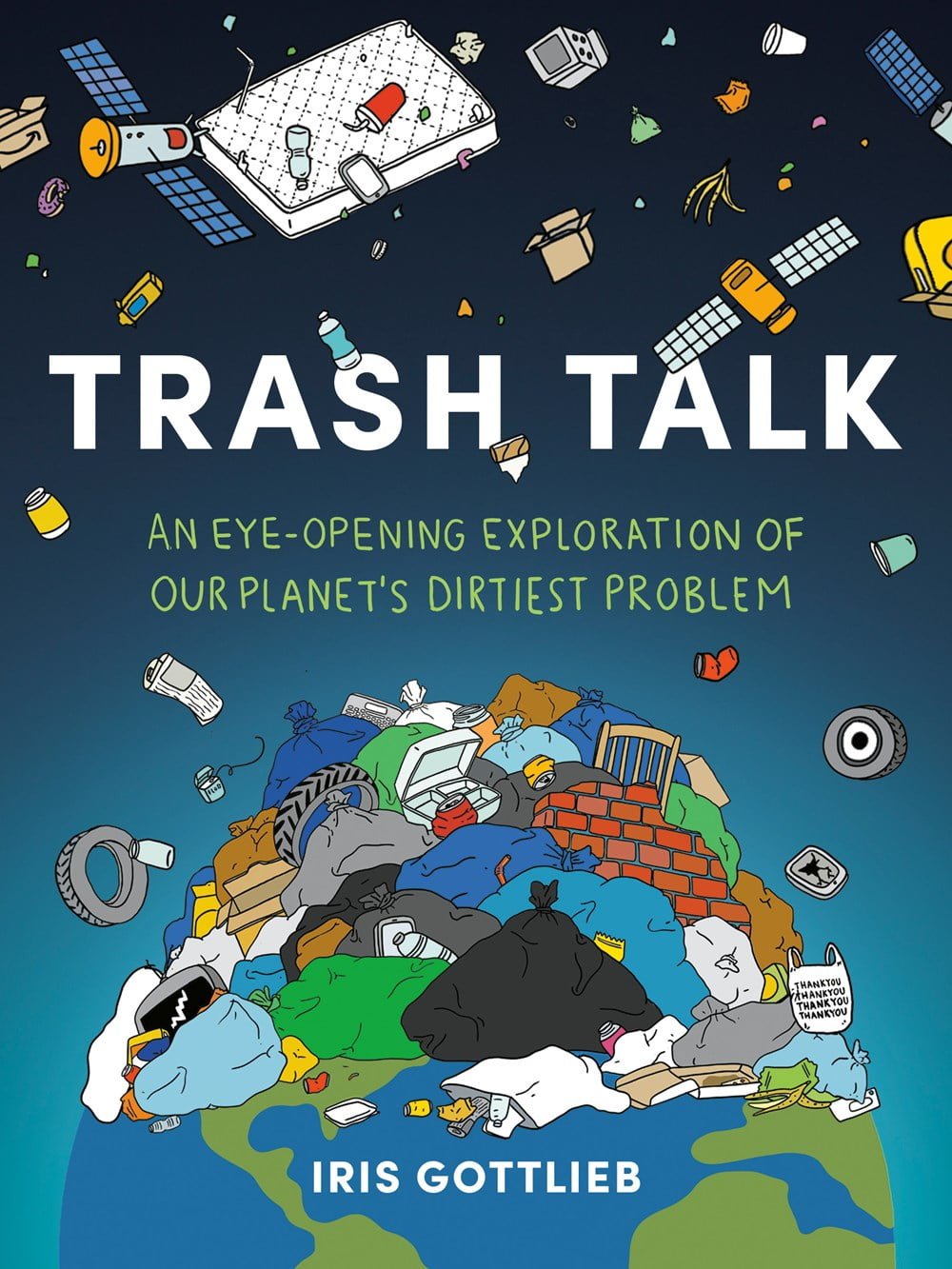An Exploration of Our Waste Management Systems
Iris Gottlieb’s ‘Trash Talk’ confronts head-on the complex and often overlooked crisis of global waste management. Through a combination of playful illustrations and science-backed insights, Gottlieb educates readers on what happens to our trash, the communities impacted by landfills, and why recycling remains a challenge.

The Complexities of Waste Disposal
Gottlieb delves into various aspects of trash disposal, including the debate over incineration versus landfills, and the nuanced dilemmas of recycling. For example, not all paper products are recyclable, a fact that many overlook in their daily routines. The discussion extends to electronic and digital waste, highlighting the growing problem of discarded gadgets and the limited recycling options available for them.
Sustainability Insights and Interventions
The book doesn’t just stop at the problems; it also covers potential interventions in different sectors such as construction, electronics, and plastics. These insights provide readers with a better understanding of how to approach sustainability and waste management more effectively. One grotesque yet eye-opening revelation in the book is about ‘fatbergs’—massive, concrete-like formations in our sewer systems comprised of non-biodegradable materials mixed with fats, oils, and grease.
Engaging and Informative Content
Despite the gravity of the subject matter, Gottlieb manages to keep the narrative engaging. ‘Trashy tidbits’ scattered throughout the book provide lighthearted interludes, such as the unique waste management system at Disney World or the quirky tale of frozen mushroom pizzas ceremoniously buried by a Lake Huron community. These anecdotes help balance the growing sense of dread readers might feel as they uncover the intricacies of our waste problem.
Overall, ‘Trash Talk’ by Iris Gottlieb is an illuminating read that brings to light the pressing issues surrounding our waste management systems. Through candor and detailed exploration, Gottlieb makes a persuasive case for why we need to rethink our approach to resource utilization and address the social injustices that perpetuate this crisis.


